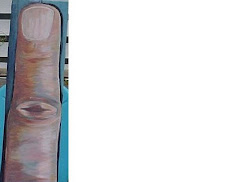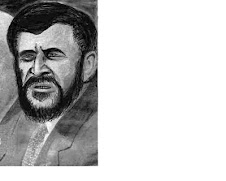 |
| Otto's Carface from Auto-asphyxiation. |
On the Oildrum's blog, Gail the Actuary asks why "United States oil consumption in 2012 will be about 4.7 million barrels a day, or 20%, lower than it would have been if the pre-2005 trend in oil consumption growth of 1.5% per year had continued". To answer that question, she posits various theories: higher fuel mileage, less vehicle miles driven, and curtailed use by a dwindling industrial sector. She also cites the high unemployment rate of the young and their resultant lack of resources with which to purchase transport, other than the public variety. All of which are variables, her aim being to discover which one holds the most weight. Not surprisingly, less vehicle miles driven holds the trump card. But what is surprising is that the correlation of that figure with high unemployment is never made.
Most drivers, other than the housewife rolling down to the grocery or other shop to do errands, are not
putting mileage on their cars in a frivolous fashion, but in order to get to a location where they can trade their labor for money. Yet all theories of Capitalism pretend that educated workers show up without any needs and magically arrive via flying car pets that need no maintenance, fuel, or initial vehicular purchase. All these are considered extraneous to the bottom-line of industry, like power production, environmental degradation and resource depletion. But in the real economy, for a workforce to be able to get to the location of many businesses that have long ago decided that the employees should come to them, and not locate in the cities where the workforce actually exists, when a large segment of those employees are thrown out of work the number of vehicle miles driven goes down and it does not come back up until the employment level does, which it hasn't and won't.
There is a rather wonderful analogy on Dmitri Orlov's blog about a monkey trap, wherein a monkey puts its hand into a gourd that contains a banana, but cannot withdraw its hand unless it unclenches its fist, releasing its hold on the treasure. This dilemma corresponds to one in which modern humans have entrapped themselves. Forgetting that cars were invented to increase mobility, allowing the procurement of employment even though it is located at a far remove from one's place of habitation, car ownership has morphed into a relationship with its owners that more and more resembles that of a pet. And sometimes more, it becomes a member of the family that must be maintained at all costs, even to that of the disintegration of that very family, the cohesion of which, it was purchased for in the first place. Like the monkey, who, Dmitri reveals, need only let go of the banana, extricate its hand, turn the gourd upside down and procure its reward without being discommoded by a gourd permanently implanted on its fist, we remain perplexed at what could be causing our economic slide into third world nation status, and the car, being the goal all those third world nations hold up as the status symbol of having 'arrived', we clutch it like the mad monkey, even as it hobbles our ability to fully engage in life, because we are instead fully engaged in the upkeep, insurance, fueling, and housing of a machine. A machine that we wouldn't even need if we didn't have to go to that job in the faraway location that we need to have in order to pay for the machine we use to burn our money up with so that it can spew it in our face in the form of a polluting gas we sit surrounded by as it takes us to that job ....
This is especially true in two-income households where the income of one of the inhabitants is of the War-Mart variety, providing barely enough to keep a person housed, fed and clothed, so it is maintained solely for the purpose of providing that person with the means of conveyance to be able to live in the far off suburb/exurb with hubbie (yes, it's invariably the wife that holds the menial position, not a fact we like to admit, but there it is). Now, like any scenario in a world of 7 billion, we can, despite our obsession with the myth if individualism, multiply it by tens of millions others who live by the same strategy, and arrive at the point where vast numbers of employees are subsidizing their employers, as, for example, War-Mart could not exist in their big box splendor in isolated venues, if it were not for the enormous economic contribution of, not only its workers, but its customer base, in providing them free transportation costs.
And that's only the most egregious example. It is repeated for every employer in far-flung suburbs paying State-subsidized wages and depending on county-subsidized roads. It used to be that the enterprise would pay in tax dollars for some of the benefits derived from locating in such areas, but that is no longer the case, as companies blackmail the politicians of the locale first, playing one municipality against another before deciding to build, ensuring their low-tax status for years, after which they simply move, or threaten to move, if their rates increase.
And the reason we've arrived at this impasse, the forces that drove us to this are based on the intractable nature of the marriage contract. It is not gay marriage that is the problem no matter how we gnash our teeth and pull our hair at the very idea of such an arrangement. It is, however, hetero sexual marriage that has brought us to this state of affairs. The way in which Muslim women are kept isolated is really not that far removed from the isolation many women experienced prior to the sixties, and still do, in many parts of the country, today. Without the relief valve of that job to give them auto-nomy, human contact, cash, self-worth and dignity, they would be left at home straddled with rearing the children; a job that can't be emphasized enough in its importance to the future health of society, and yet one that, like housework, home economics and shopping, could hardly be valued less.
And so, there is no unclenching of those car keys likely to ensue. And that is only one segment of the population that's condemns itself to machine servitude to be free of the human variety. So although Dmitiri uses his analogy to demonstrate the intractable nature of politicians holding onto power, it is we who elect the politicians, and they know that even a whisper about reduced motility in the USA is, for a politico, like reserving a spot in the unemployment line; it is We the People who will not even consider letting that banana slip out of our clutching paw, because, nowadays, sans home, sans job, sans family, for some millions of us, it is the only security, representing the last remnant of the American Dream, that we will ever really know.
Which gets us back to Gail the Actuary's statistic that the plummeting in vehicle miles driven hints at. That the Energy independence, of which the political leaders, and I use that term loosely, in both parties are trumpeting, is always assumed to be coming from the fracking revolution and the resurgence in American energy production it has made possible. But what a 20% reduction in energy usage from vehicular traffic suggests is that the so-called Independence is coming instead at the price of yours: because it is only via increased energy production coupled with decreased energy usage that makes that much-vaunted Energy Independence they crow about evenly remotely possible. Happy Motoring.






















































